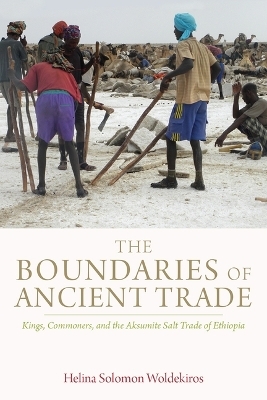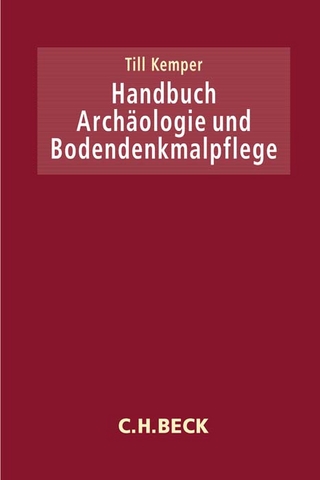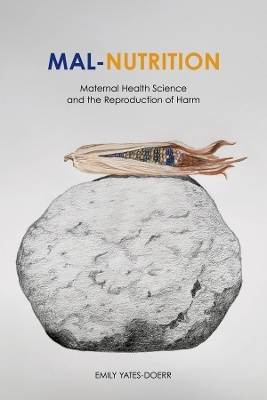
The Boundaries of Ancient Trade
Kings, Commoners, and the Aksumite Salt Trade of Ethiopia
Seiten
2023
University Press of Colorado (Verlag)
978-1-64642-472-6 (ISBN)
University Press of Colorado (Verlag)
978-1-64642-472-6 (ISBN)
- Lieferbar (Termin unbekannt)
- Versandkostenfrei
- Auch auf Rechnung
- Artikel merken
Drawing on rich ethnographic data as well as archaeological evidence, The Boundaries of Ancient Trade challenges long-standing conceptions of highly centralized sociopolitical and economic organization and trade along the Afar salt trail one of the last economically significant caravan-based trade routes in the world.
Drawing on rich ethnographic data as well as archaeological evidence, The Boundaries of Ancient Trade challenges long-standing conceptions of highly centralized sociopolitical and economic organization and trade along the Afar salt trail—one of the last economically significant caravan-based
trade routes in the world.
For thousands of years, farmers in the Tigray, Amhara, and Afar regions of Ethiopia and Eritrea have run caravans of nearly 250,000 people and pack animals annually along an eighty-mile route through both cold, high-altitude farmlands and some of the hottest volcanic desert terrain on earth. In her fieldwork, archaeologist Helina Solomon Woldekiros followed the route with her own donkey and camel caravan, observing and interviewing over 150 Arho (caravaners), salt miners, salt cutters, warehouse owners, brokers, shop owners, and salt village residents to model the political economy of the ancient Aksumite state. The first integrated ethnoarchaeological and archaeological research on this legendary route, this volume provides evidence that informal economies and local participation have played a critical role in regional trade and, ultimately, in maintaining the considerable power of the Aksumite state. Woldekiros also contributes new insights into the logistics of pack animal–based trade and variability in the central and regional organization of global ancient trade.
Using a culturally informed framework for understanding the organization of the ancient salt route and its role in linking the Aksumite state to rural highland agricultural and lowland mobile pastoralist populations, The Boundaries of Ancient Trade makes a key contribution to theoretical discussions of hierarchy and more diffuse power structures in ancient states. This work generates new interest in the region as an area of global relevance in archaeological and anthropological debates on landscape, social interaction, and practice theories.
Drawing on rich ethnographic data as well as archaeological evidence, The Boundaries of Ancient Trade challenges long-standing conceptions of highly centralized sociopolitical and economic organization and trade along the Afar salt trail—one of the last economically significant caravan-based
trade routes in the world.
For thousands of years, farmers in the Tigray, Amhara, and Afar regions of Ethiopia and Eritrea have run caravans of nearly 250,000 people and pack animals annually along an eighty-mile route through both cold, high-altitude farmlands and some of the hottest volcanic desert terrain on earth. In her fieldwork, archaeologist Helina Solomon Woldekiros followed the route with her own donkey and camel caravan, observing and interviewing over 150 Arho (caravaners), salt miners, salt cutters, warehouse owners, brokers, shop owners, and salt village residents to model the political economy of the ancient Aksumite state. The first integrated ethnoarchaeological and archaeological research on this legendary route, this volume provides evidence that informal economies and local participation have played a critical role in regional trade and, ultimately, in maintaining the considerable power of the Aksumite state. Woldekiros also contributes new insights into the logistics of pack animal–based trade and variability in the central and regional organization of global ancient trade.
Using a culturally informed framework for understanding the organization of the ancient salt route and its role in linking the Aksumite state to rural highland agricultural and lowland mobile pastoralist populations, The Boundaries of Ancient Trade makes a key contribution to theoretical discussions of hierarchy and more diffuse power structures in ancient states. This work generates new interest in the region as an area of global relevance in archaeological and anthropological debates on landscape, social interaction, and practice theories.
Helina Solomon Woldekiros is assistant professor in the Department of Anthropology at Washington University in St. Louis. Her research on the Afar trade route has been funded by the National Science Foundation, the Wenner-Gren Foundation, and the Fulbright-Hays Faculty Research Abroad Program.
| Erscheinungsdatum | 22.06.2023 |
|---|---|
| Verlagsort | Colorado |
| Sprache | englisch |
| Maße | 152 x 229 mm |
| Gewicht | 428 g |
| Themenwelt | Geisteswissenschaften ► Archäologie |
| Sozialwissenschaften ► Ethnologie | |
| Sozialwissenschaften ► Soziologie | |
| ISBN-10 | 1-64642-472-7 / 1646424727 |
| ISBN-13 | 978-1-64642-472-6 / 9781646424726 |
| Zustand | Neuware |
| Informationen gemäß Produktsicherheitsverordnung (GPSR) | |
| Haben Sie eine Frage zum Produkt? |
Mehr entdecken
aus dem Bereich
aus dem Bereich
maternal health science and the reproduction of harm
Buch | Softcover (2024)
University of California Press (Verlag)
CHF 52,35
Holocaust heritage, noncitizen futures, and black power in Berlin
Buch | Softcover (2022)
University of California Press (Verlag)
CHF 52,35


